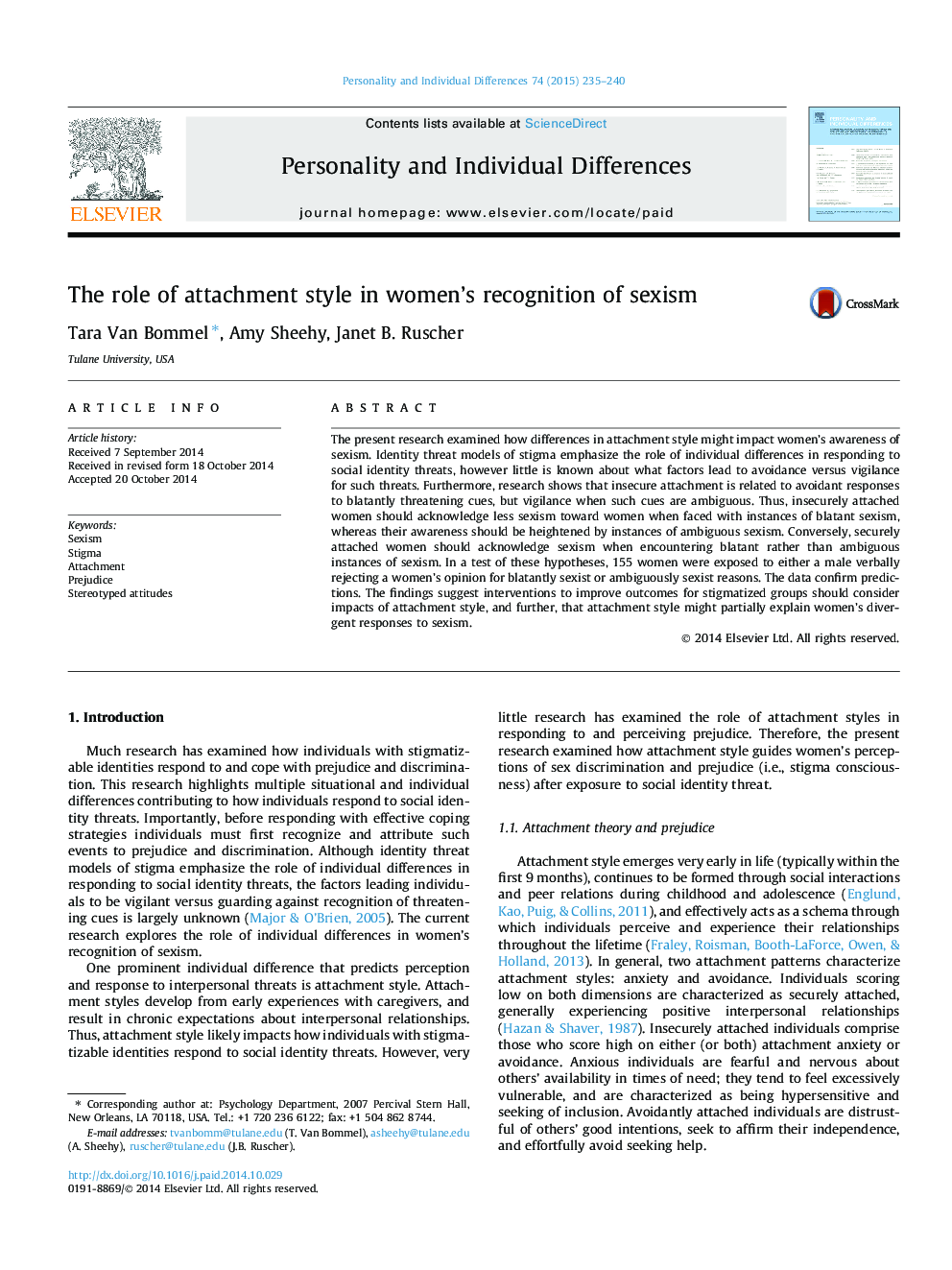| Article ID | Journal | Published Year | Pages | File Type |
|---|---|---|---|---|
| 7252026 | Personality and Individual Differences | 2015 | 6 Pages |
Abstract
The present research examined how differences in attachment style might impact women's awareness of sexism. Identity threat models of stigma emphasize the role of individual differences in responding to social identity threats, however little is known about what factors lead to avoidance versus vigilance for such threats. Furthermore, research shows that insecure attachment is related to avoidant responses to blatantly threatening cues, but vigilance when such cues are ambiguous. Thus, insecurely attached women should acknowledge less sexism toward women when faced with instances of blatant sexism, whereas their awareness should be heightened by instances of ambiguous sexism. Conversely, securely attached women should acknowledge sexism when encountering blatant rather than ambiguous instances of sexism. In a test of these hypotheses, 155 women were exposed to either a male verbally rejecting a women's opinion for blatantly sexist or ambiguously sexist reasons. The data confirm predictions. The findings suggest interventions to improve outcomes for stigmatized groups should consider impacts of attachment style, and further, that attachment style might partially explain women's divergent responses to sexism.
Related Topics
Life Sciences
Neuroscience
Behavioral Neuroscience
Authors
Tara Van Bommel, Amy Sheehy, Janet B. Ruscher,
